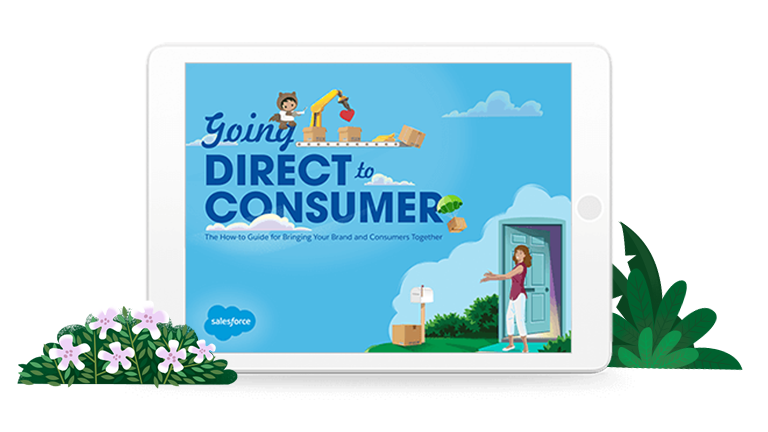Consumer goods (CG) companies are racing to meet changing consumer expectations by investing in direct to consumer (D2C). D2C channels offer instant access to ownable consumer data. With this information, CG companies can connect with consumers, understand habits and behaviours to better adapt the journey, and build lasting relationships.
D2C is part of the future of CG. In fact, 99% of CG leaders say they are already investing in D2C sales.
In this blog, we provide a checklist for Consumer Goods companies on how to go D2C, unite teams behind a common goal, and deliver excellent shopper experiences.
D2C checklist for Consumer Goods companies
SEO Strategy
Optimise the experience for your customers at every stage of the journey. Create an SEO strategy with targeted keywords and search terms that will push your site to the top of the search engine results page (SERP). Foster an understanding of search intent, such as the difference between mobile and desktop search queries.
Digital Site Strategy
Account for the content that will surface above and below the fold. Above the fold is the top half of a web page that's visible without the need to scroll down. Considering the initial content your visitors see is important to understand the overall user experience throughout the entire purchase journey. Going direct-to-consumer means redefining your value proposition about more than just your product.
The most successful companies understand that their consumer experience is their unique value proposition. Establish a consumer-first strategy that goes beyond the transactional to connect people with products and experiences that resonate. Consider how content will work alongside products with great descriptions and imagery on your site.
Merchandising
Surface the right products to the right consumers with appropriate merchandising techniques. With some help from artificial intelligence (AI), you can learn which channels, messages, and content resonate with your customers the best. AI automatically analyses the interactions your consumers have with your business across all touch-points.
Configure product listings, make them easy to find, and give shoppers discounts they love. You can start with trailhead and learn from the best in B2C.
Order Management and Fulfilment
Your order management system and fulfilment should give consumers the choice to ship and return online (or in-store if you also have brick-and-mortar locations). Essentially, they should be able to handle individual orders. To adjust your fulfilment model, look to third-party fulfilment partners for support. Break down data silos to get a single view of your stock. This will help reduce wastage, improve margins, and enhance the customer experience.
Marketing and Communications
Paid advertising campaigns, social media, email, partnerships, and more will increase your brand awareness. Engaging, informative, and relevant messaging keeps consumers coming back. Use a communication channel like a blog to generate organic traffic to your website.
Customer Service
Ensure customer satisfaction with service on every channel, from onsite chat to SMS to social messenger. Help agents resolve cases faster with the right tools and empower consumers with self-service through community portals. Include a FAQ page on your site for the most common questions and answers.
Data
A single view of your data is the key to unlocking the best consumer experiences throughout the entire journey. A unified engagement platform aggregates data across every channel for a 360-degree view. Providers like Salesforce Commerce Cloud make it easy to achieve this so that you can deliver the personalised experiences that build loyalty.
Create personalised shopping experiences at scale
AI enhances the customer experience because it powers personalisation at scale. It analyses the nuances and behaviours from consumer data across all touch-points and surfaces relevant content that increases the likelihood of conversion.
Going D2C is your opportunity to know your consumers in ways you never have before. Access to first-party data will refine your strategies, evolve your journeys, and exceed expectations. If you’re ready to jump, learn more about the steps you need to take to bring your brand and consumers together.
Thinking about going direct to consumer? Get your step-by-step guide to starting a D2C channel.





